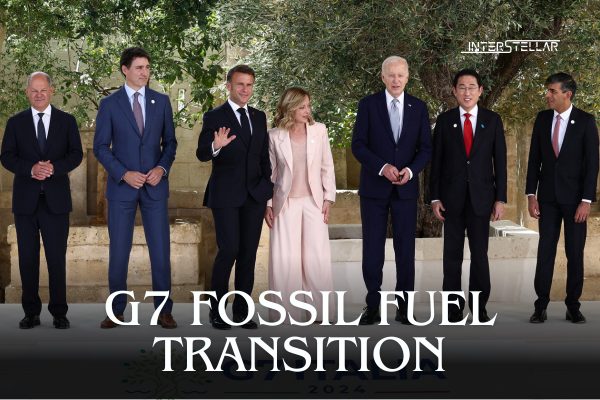G7 Leaders Pledge to Accelerate Transition Away from Fossil Fuels
Commitment to a Sustainable Future
Leaders of the Group of Seven (G7) developed democracies are set to commit to an accelerated transition away from fossil fuels during this decade. This pledge is part of a draft statement to be issued at the end of their ongoing summit in Italy. The G7 nations—comprising the United States, Canada, Japan, Germany, France, Britain, and Italy—aim to achieve a net-zero carbon emission target by 2050, aligning with the best available scientific recommendations.
“We will transition away from fossil fuels in energy systems in a just, orderly, and equitable manner, accelerating actions in this critical decade, to achieve net-zero by 2050 in keeping with the best available science,” the draft statement, seen by Reuters, declares.
Climate Policy Initiatives
The draft includes several key commitments on climate policy. One significant pledge is to phase out existing unabated coal power generation in the energy systems of G7 countries by the first half of the 2030s. This move is crucial for reducing greenhouse gas emissions and combating climate change.
As the COP29 United Nations climate conference approaches in November, the G7 leaders have promised to submit “more ambitious” national climate plans. This shows a collective effort to enhance global climate action and strengthen commitments to reducing emissions.
Methane Emission Reduction
The document also highlights a collective effort to reduce methane emissions by 75% by 2030. Methane is a potent greenhouse gas, and its reduction is vital for slowing global warming and improving air quality.
Temporary Public Investments in Natural Gas
However, the draft statement includes a controversial section likely to upset environmental activists. It gives a green light to public investments in natural gas under exceptional circumstances. The statement reads, “In the exceptional circumstance of accelerating the phase-out of our dependency on Russian energy, publicly supported investments in the gas sector can be appropriate as a temporary response, subject to clearly defined national circumstances.”
This clause acknowledges the current geopolitical realities and energy security concerns, especially given the ongoing conflict in Ukraine and the dependency on Russian energy supplies. It suggests that, while the long-term goal is to transition away from fossil fuels, short-term investments in natural gas may be necessary to ensure energy stability.
Conclusion
The G7’s commitment to accelerating the transition from fossil fuels marks a significant step towards addressing climate change. By phasing out coal power, reducing methane emissions, and submitting more ambitious climate plans, the G7 nations demonstrate their dedication to a sustainable and equitable energy future. However, the inclusion of public investments in natural gas as a temporary measure highlights the complex balance between immediate energy needs and long-term climate goals.





